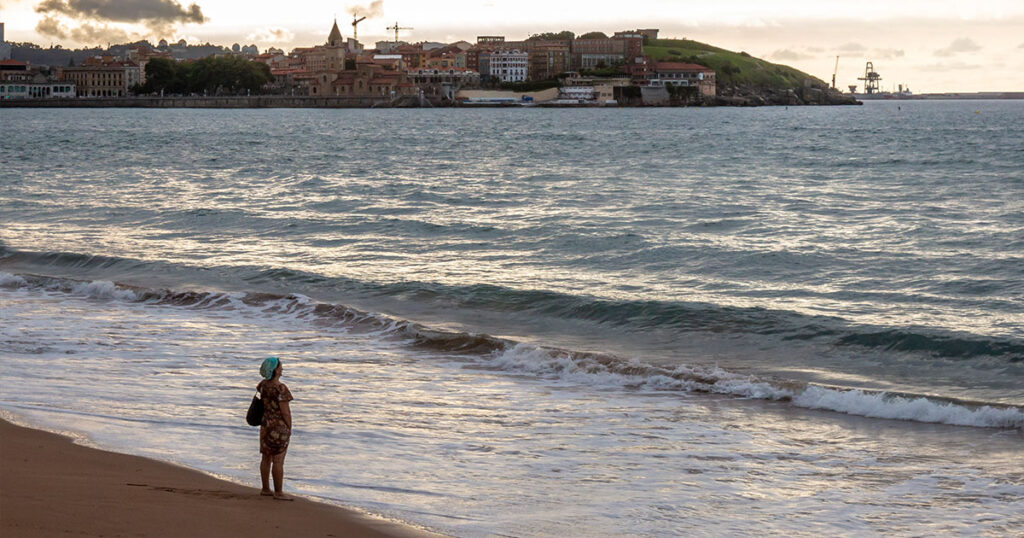
In gymnastics lingo, you land the dismount. You don’t nail it or ace it as you do an exam or a tennis serve; you land it, as you might a boat on a rocky shore. J. Meade Falkner’s Moonfleet, among my favorite adventure books, ends with one character staggering ashore after a shipwreck, the other washing up later, drowned, nothing triumphant about either landing. In gymnastics, too, where the body you are guiding from one medium to another, from air to solid ground, is fragile and can break apart, just staggering across the mat should be success enough, and one extra step to catch yourself should be nothing at all. I love gymnastics—the bodies all rippling with muscle like a bit of water flowing in an endless loop, arms, chest, legs, stomach, butt—but I don’t follow it, and I wouldn’t have seen more than the highlights of the Olympic Summer Games, due to have started this week but postponed. For me, the gymnast’s extra steadying step on landing is fine. But it isn’t fine when perfection is the object.
When is perfection ever not preferred? Sometimes such a thing as good enough operates, but that’s when you weigh one thing against another and see that every improvement on one side means a cost on the other. Keeping your poise vs. keeping dry means walking with alacrity but not scurrying, a drop to 70 percent dignity to stay 30 percent dry as the rain starts with shelter still 20 feet away. It’s all math, and to get through life dry, calm, and smiling requires good luck or a good head for figures.
I reread Moonfleet three times to my offspring. The first time I was pregnant and, on the advice about talking to your child in utero, I kept my fetus up on big developments in the world as well as small ones at home, like the plan for lunch, or how heavy he was getting, or how hot the weather was turning. When I tired even of those topics, I read the novel aloud, draped in an armchair by the window. I read the whole thing, patting my belly at the tense parts to reassure the baby. But I skipped ahead occasionally, reading silently, and so when he was six months old and nursing himself to sleep five times a day, I started all over from the beginning, and because it was fresh in my mind, I could warn about the scary parts and sad parts coming up, essentially providing road signs: curve ahead, steep grade, high winds may exist. Even though I was providing the warnings, they served to prepare me too for the coming troubles, the great sadness, and the bittersweet ending.
The third time I read the book to my children was 10 years later, and the audience included the little brother. Though I’d have preferred for everyone’s sake to skip the sad parts, that wasn’t really an option. Besides, one of the boys already knew life was hard, and the other was blithe enough not to care. One was a perfectionist who felt every failure, one content with good enough.
During the confinement, running in my lane, I had no need for road signs. This stretch of track I knew like Falkner’s characters Elzevir Block and John Trenchard knew the Dorset coast. But as I trotted along, one foot in front of the other, one landing after the other, all down the lane, a feat without elegance or danger, I thought about the gale on a black night near the village of Moonfleet, reminding myself that even Elzevir and John were shipwrecked in their own cove, in home waters. Better to concentrate and land each footfall. Either perfectly or adequately would get me back to my door.

